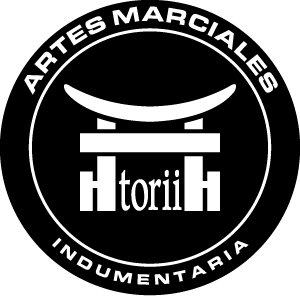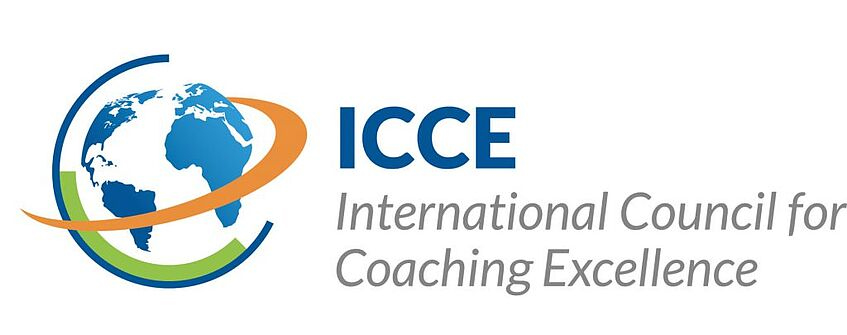
Learning how to apply and teach the “Do”. Focus on the Tenets of Taekwon-Do.
With
The ITF Do & Ethics Committee
Master Janel Gauthier, Prof. Dr. (Chair, ITF black belt, 7th degree)
Master Joliette Trân (Member, ITF black belt, 7th degree)
Master Andreu Martinez (Member, ITF black belt, 7th degree)
Grand Master Abelardo Benzaquén (Member, ITF black belt, 9th degree)
SUMMARY
WHY THIS COURSE IS RELEVANT TO YOU
MATERIAL AND TRAINING MODALITIES
INTRODUCTION
For General Choi Hong Hi, the Father of Taekwon-Do, physical and moral training are two indivisible parts of the study of Taekwon-Do. In his last publication, entitled Moral Guide Book (2000), he wrote:
“…the only way one can truly achieve the status as a man of Taekwon-Do is to go beyond the technical aspect and establish a lifestyle based on a solid code of morality. In fact, all the years of hard training will be nothing but a waste of time if not accompanied by modesty and propriety which are the very essence of Oriental philosophy.” (p. 9).
During his life, General Choi was so busy circling the globe to spread Taekwon-Do and conduct technical seminars that he did not have time to train anyone in carrying on his legacy of moral culture. Toward the end of his life, however, he took some of his valuable time to share with us the knowledge and wisdom that he had acquired over the years. It was his earnest desire that future generations would incorporate the teaching of the “Do” into the teaching of Taekwon-Do.
WHY THIS COURSE IS RELEVANT TO YOU
Studying the Do is an essential component of learning Taekwon-Do. Without studying and promoting moral values, Taekwon-Do is merely a sport of combat, not a true martial art. Taekwon-Do should never be taught without teaching the way of life (i.e., the Do), which is the true nature and spirit of the martial arts.
Teaching the Do is also good for business. Those instructors who are able to teach the Do effectively can attract more students because they are providing them a product that is both better and unique.
WHO THIS COURSE IS FOR
This course is a two-day course.
It is for all Taekwon-Do practitioners who are at least 13-years old. Those from 8th to 3rd grade (i.e., from yellow belt to blue belt with red stripe) attend Day 1. Those from 2nd grade and above (i.e., from red belt and above) attend Day 1 and 2. The ITF “International Do Course” certificate of participation is issued only to those who complete the full course (i.e., Day 1 and Day 2).
On Day 1, participants experience the Tenets of Taekwon-Do and learn how to apply them in their daily lives. On Day 2, they learn and practice a variety of exercises to further understand and apply the Do. In addition, experienced practitioners learn how to use the exercises to teach the Do and how to integrate this material into their regular classes.
GOAL AND OBJECTIVES
For all participants, the goal of the present course is to experience the application of the Tenets of Taekwon-Do in the dojang and learn how they can be applied in daily life to become a better citizen and build a better world. For those who teach Taekwon-Do, the goal of the present course is also to learn and practice a variety of exercises to teach the five Tenets of Taekwon-Do.
The training sessions are designed to provide participants with a wide range of experience aiming to further the understanding and application of the Tenets of Taekwon-Do. They are also designed to provide those who teach Taekwon-Do with practical knowledge that they can immediately take back to their dojang and use to teach the Do to their students.
At the conclusion of the course, be it Day 1 or Day 2, all participants will be able to:
- Define in simple terms each tenet of Taekwon-Do;
- Provide for each tenet of Taekwon-Do examples of what it is and what it is not;
- Describe the advantages and benefits of studying and applying each tenet of Taekwon-Do;
- Identify situations where the tenets of Taekwon-Do can be applied in the dojang and daily life;
At the conclusion of Day 2, participants who teach Taekwon-Do will also be able to:
- Know when and how to use a variety of tools and specific techniques to teach effectively the tenets of Taekwon-Do;
- Integrate teaching the tenets of Taekwon-Do into regular Taekwon-Do classes;
CONTENT
1. Introduction
1.1. Moral culture and Taekwon-Do
1.2. Origin and meaning of the word “Do”
1.3. The Tenets of Taekwon-Do and the “Do”
2. Study and Application of the Tenets of Taekwon-Do (Courtesy, Integrity, Perseverance, Self-Control, and Indomitable Spirit)
2.1. Definition (what they are and what they are not)
2.2. Behavioural signs (when they are present and when they are absent or lacking)
2.3. Advantages and benefits (why it is important to have them and cultivate them)
2.4. Using physical Taekwon-Do training to experience and highlight the Tenets of TKD
2.5. Tips to develop the Tenets of TKD
3. Activities, tools and strategies for teaching the Do
4. Integration of Do teaching into regular TKD classes.
5. Conclusion
MATERIAL AND TRAINING MODALITIES
During the two-day course, we will refer two booklets: a Student’s booklet and an Instructor’s booklet.
All participants will receive a copy of the Student’s booklet, which includes an introduction to each tenet (anecdotes or stories, definition, behavioural signs, advantages and benefits, etc.), with space for students to write notes and complete exercises.
Day 2 participants will also receive the Instructor’s booklet, which provides explanations and suggestions about how to use and teach the contents of the Student’s booklet, with additional activities (quiz, games, etc.) and material (forms, summaries, outlines, examples, samples, etc.) that instructors can use in class to teach the Do.
Over the course, demonstrations, physical training, hands-on experience, role-playing, feedback, brief presentations and discussions will be used to experience the Tenets of Taekwon-Do and learn how to teach them.
ACTIVITIES AND TIMELINE
The two-day course will unfold on as follows:
Day 1
The first day focuses on experiencing the Tenets of Taekwon-Do through physical training. Participants will identify which tenets they are using during various exercises, how they are using them, and how they can be used outside the dojang. Participants will also experience a couple of other types of activities used to understand and explore the Do.
Day 2
The second day introduces a variety of different activities to explore and experience the Tenets of Taekwon-Do in various ways. These include different types of discussion, role playing and problem solving. Experienced participants will also learn how to use these activities in their own dojang, together with strategies for integrating Do teaching into regular classes.
COURSE INSTRUCTORS
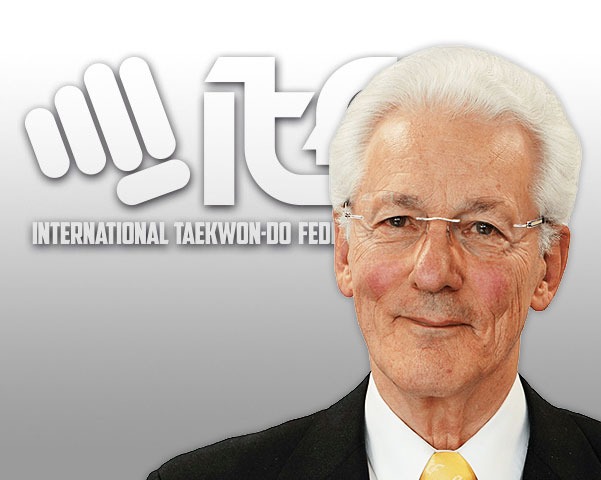
Dr. Janel Gauthier is President of the International Association of Applied Psychology and Professor Emeritus of Psychology at Laval University, Canada. He is specialized in health clinical psychology, behavioral change, and ethics. He is the Chair of the ITF Do Committee and a former chair of the ITF Committee on Ethics and Discipline. He is also a Black Belt, 6th degree, in Taekwon-Do. He studied Taekwon-Do under late Grand Master Trân Triêu Quân and worked closely with him on many ITF Taekwon-Do projects, including the development of the ITF program for teaching the Do, for over 20 years.
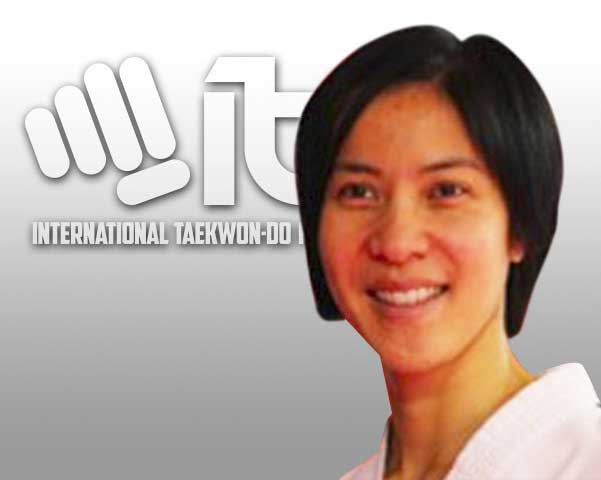
Master Joliette Trân has a Master Degree in public health. She is an occupational therapist and she teaches in the Department of Rehabilitation of Laval University. She is a member of ITF Do Committee. She is also Black Belt, 7th degree, in Taekwon-Do. She teaches Taekwon-Do since 1990 and has broad experience in teaching to all ages. She specializes now in teaching Taekwon-Do to people who are 50 years-old and older in order to promote healthy aging and continuous learning.
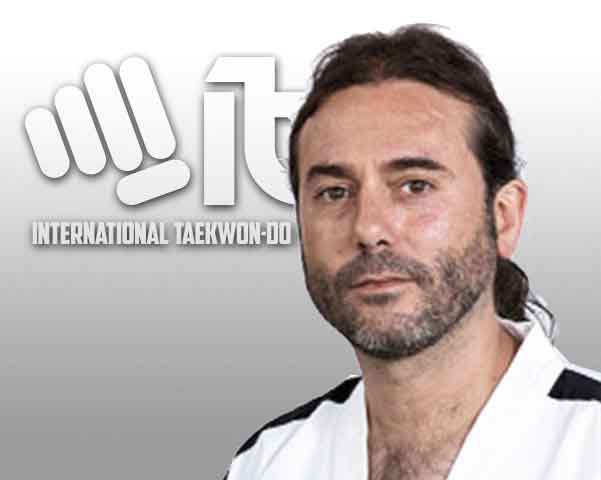
Master Andreu Martinez has a Degree in Philosophy and teaches Ethics and Languages in a Secondary School. He has visited Korea many times to learn its Culture and Language. He is Master , 7th Degree, International Taekwon-Do Instructor. He started practicing Taekwon-Do in 1985 and is a member of the ITF Do Committee. In Spain, he is the Chairman of the Umpire Committee and a member of the National Board.
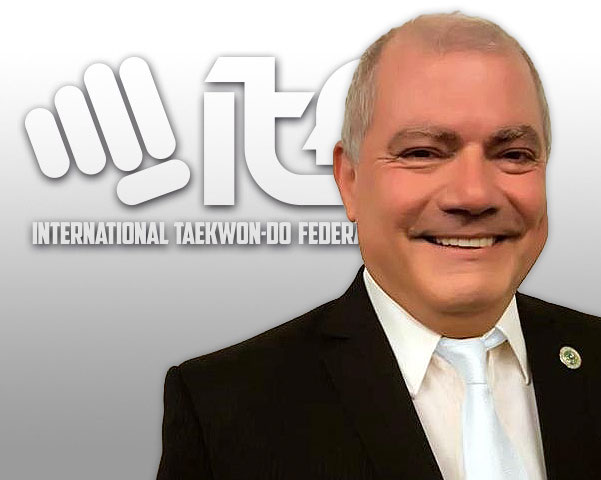
Master Abelardo Benzaquén
COURSE BOOKING AND INQUIRIES
To book an International Do Course (IDC) or to make inquiries, contact Prof./Dr. Janel Gauthier (e-mail: [email protected]).
ITF APPROVAL
This course is approved by the ITF Secretary-General.
Participants who complete the two-day course will receive an ITF “International Do Course” certificate. At the Organizer’s discretion, those who attend only the first day of the course may receive a certificate of attendance. Such a certificate will be issued by the Organizer, not the ITF.
BACKGROUND
When late Grand Master Trân Triêu Quân succeeded General Choi as President of the ITF in 2003, he pledged to develop the teaching of the Do in ITF and enable Taekwon-Do instructors to teach the Do to their students. Thanks to the cooperation of the ITF Technical and Instruction Committee, a component dealing with the teaching of the Do was added to the International Instructors Course. In 2006, a working group was created to develop a master training program for teaching the Do and teaching tools to support it.
Under Grand Master Trân Triêu Quân’s leadership, and on behalf of the Technical and Instruction Committee, the ITF Working Group for the Development of the Teaching of the Do has developed a training program designed to initiate ITF Taekwon-Do Instructors, as well as Masters and Grand Masters, to the teaching of the moral culture of Taekwon-Do to their students. This program focuses on the teaching and application in life of the five tenets of Taekwon-Do: Courtesy, Integrity, Perseverance, Self-Control, and Indomitable Spirit. It is divided into two levels and each level has different program contents and different teaching modules. Program contents become more advanced at the higher level.
At the 1st ITF Instructors Convention in September 2011, the Working Group taught five hours of classes about how to teach the Do. These classes were extremely well received and, with the support of ITF, the Working Group proceeded to expand the material into a two-day course.
The two-day course, called the “International Do Course”, was officially launched by Grand Master Pablo Trajtenberg at the end of a four-hour seminar conducted over a two-day period by the Do Committee at the 3rd ITF Convention in Benidorm, Spain, 1-5 March 2017.









